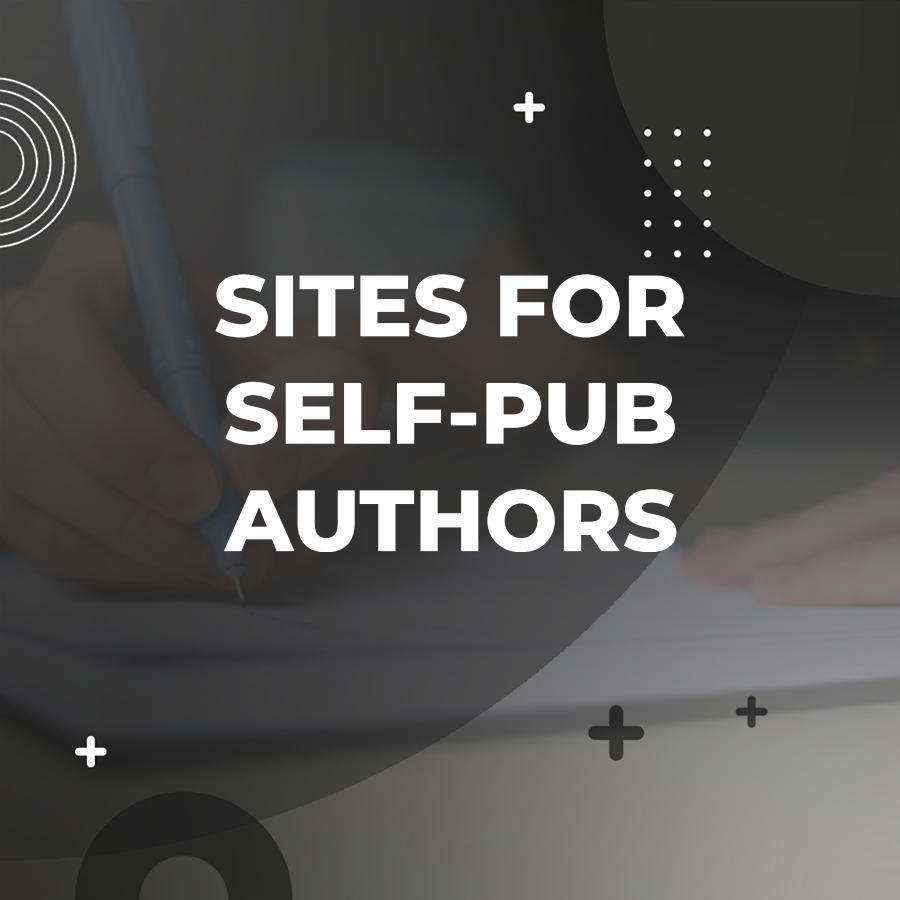In the world of self-publishing, authors face the significant challenge of standing out in a crowded marketplace. With countless books available at every reader’s fingertips, building a personal brand online is no longer a luxury; it has become a necessity. So, how can self-published authors create a compelling website that not only attracts readers but also converts visits into sales? A well-structured author website is key.
Table of Contents
The Purpose of an Author Website
The primary purpose of an author’s website is to serve as a central hub for the author’s online presence. It allows authors to showcase their work, share their story, and connect with readers. Unlike social media, which is often fleeting and unpredictable, a dedicated website offers control and the opportunity for in-depth engagement.
Let’s say an aspiring author named Jane has just published her first novel. She wants to attract readers and establish herself as a serious writer. Suppose Jane sets up a straightforward website showcasing her book, including sample chapters, a blog about her writing journey, and links to purchase the book. Then, she can effectively communicate who she is and what she offers without getting lost in the social media noise.
Key Components of an Author Website
1. A Clean and Professional Design
The design of the website is the first thing visitors notice. A cluttered and unprofessional site can deter potential readers. Use clear fonts, a simple color palette, and intuitive navigation. When Jane built her website, she hired a freelance designer who created a sleek, modern design that highlighted her book’s cover art and made it easy for visitors to explore.
2. An Engaging Author Biography
An engaging author bio is essential. Readers build instant connections through genuine details. Jane wrote a biography that included her background, inspiration for the novel, and a few personal anecdotes. She maintained a polished tone with a relatable touch, which prompted many visitors to reach out to her via email, praising her story.
3. Sample Chapters or Excerpts
Potential readers love to get a taste of what book they’re about to buy. Providing sample chapters or excerpts can entice them. Jane included the first two chapters of her novel on her site, complete with a call-to-action button at the end for readers to purchase the entire book. This simple trick significantly increased her conversion rates.
4. An Integrated Blog
Content is king, and blogs can keep your website fresh and engaging. Consistent blogging allows you to share insights into your writing process, updates on upcoming projects, or thoughts on industry trends. For instance, Jane wrote a series of posts about the self-publishing process, which gained traction among other writers. This approach not only generated traffic to her site but also positioned her as an authority in self-publishing.
5. A Newsletter Sign-Up
Building an email list is perhaps one of the most critical components for a self-published author. A newsletter allows authors to communicate directly with their readers. When Jane offered a free short story to anyone who signed up for her newsletter, her subscriber list grew rapidly. The following month, she sent an email blast announcing her book launch, and she attributed a significant number of sales to this initiative.
SEO Best Practices for Author Websites
To ensure that potential readers can find your site, employing effective search engine optimization (SEO) strategies is crucial. Here are some best practices:
1. Keyword Research
Understand what keywords potential readers might use to find books in your genre. Jane took the time to research keywords like “fantasy novels,” “self-publishing resources,” and “best new authors.” Incorporating these keywords into her website’s content helped improve her search engine ranking.
2. Optimize Each Page
Optimize all website pages for higher search rankings. Meta descriptions, descriptive alt tags for images, and headers containing target keywords deliver better visibility. Jane used tools like Yoast SEO to ensure each page was optimized, which significantly increased her website’s organic reach.
3. Mobile Optimization
Mobile devices generate the majority of web traffic. Pages that fit screens well reach more users and prompt fast action. Jane used a responsive design so her website would look great on any device. This step ensured that mobile visitors had the same positive experience as those using a desktop.
Utilizing Social Media
While an author website is vital, social media is a powerful tool for driving traffic to your site.
1. Link Your Website to Social Media Profiles
Ensure that your social media profiles link back to your website. When Jane launched her first book, she ran a campaign on Facebook, Instagram, and Twitter, consistently directing followers to her site for more information and purchase details.
2. Engage With Your Audience
Being active on social media enables authors to interact with their readers and build a community. Readers appreciate authentic engagement. When Jane responded to comments and messages about her book, it not only impressed her followers but also enticed them to become more invested in her work.
Tracking Your Website’s Performance
Understanding how your website performs is crucial for iterating and improving your online presence.
1. Utilize Analytics Tools
Using tools like Google Analytics helps track visitor behavior. Jane regularly reviewed her analytics data to see which pages were popular and how visitors found her site. This information guided her future content decisions.
2. Monitor Engagement Metrics
It’s essential to look beyond traffic. Track bounce rates and average time users stay on the site. If readers are quickly bouncing away, it might be time to reassess your website’s content or design. After noticing high bounce rates on her blog, Jane decided to redesign her blog layout and add more engaging images. These adjustments led to improved reader retention.
E-commerce Capabilities
If your goal is to sell books directly from your site, you need e-commerce capabilities.
1. Integrated Shopping Cart
Integrate an easy-to-use shopping cart feature on your website. Jane chose to use a simple WordPress plugin that allowed her to sell both print and digital versions of her book with minimal hassle. This ease of use contributed to her sales growth.
2. Secure Payment Processing
Security and convenience are crucial for both you and your buyers. Make sure your website features a secure payment processing system. Jane partnered with PayPal and Stripe to ensure her customers felt secure while making purchases.
Building a Community: Forums and Reader Feedback
Fostering a community among readers can lead to long-term success.
1. Integrate a Forum
Consider integrating a forum or a comments section on your website. This feature enables readers to interact with you and each other. Jane dedicated a section of her site to discussions about her book, which encouraged readers to share their thoughts and experiences.
2. Encourage Reviews
Encourage readers to leave reviews for your book on your site. Positive reviews can be a deciding factor for potential buyers. Jane included a “Review” section for readers to share comments, further motivating others to check out her book.
Additional Information
Self-published authors can significantly enhance their online presence by leveraging a few facts about their websites.
- Email Sign-Up Pop-Ups: Using email sign-up pop-ups strategically can significantly boost your newsletter subscribers. Place them on your homepage or after a visitor spends a certain amount of time on your site.
- Custom Domain Names: Investing in a custom domain name not only boosts credibility but also makes it easier for readers to find and remember your site. Skip free extensions because they can make your site look less professional.
- SEO Keywords: Implementing search engine optimization (SEO) keywords related to your book genre can help drive organic traffic to your site. Research popular keywords in your niche and incorporate them naturally into your content.
- Author Blog: Regularly updating a blog on your website can keep readers engaged and improve your search ranking. Consistency is key—aim for at least one post per month that relates to your writing.
- Book Previews: Offering free chapters or excerpts from upcoming works can entice readers and encourage them to sign up for notifications about your releases, boosting interest before launch day.
- Social Proof: Displaying testimonials, reviews, or media mentions on your site serves as social proof, which can convince potential readers to buy your book.
- Linked Social Media: Integrating your social media platforms directly on your website makes it easier for fans to follow you across different channels, increasing engagement and interaction.
- Analytics Tracking: Google Analytics displays how people interact with your site. Review this data, then adjust content and marketing to suit what interests your audience.
- Mobile Optimization: With many readers accessing the web via mobile devices, ensuring your website is mobile-friendly can improve user experience and retention.
- Author Resources Page: Creating a resources page with tips or links for aspiring authors can attract more traffic and position you as an authority in the self-publishing space.
Frequently Asked Questions (FAQs) Related to Self Published Author Websites
Q. What is the purpose of a website for a self-published author?
A. A website serves as a central hub for your writing, showcasing your books, sharing updates, and connecting with readers. It helps build your online presence and brand.
Q. Do I need to know how to code to create my author website?
A. No, you don’t need coding skills. Many user-friendly website builders, like WordPress or Wix, allow you to create a professional-looking site with drag-and-drop features.
Q. What essential pages should my author website include?
A. You should include an about page, book listings with purchase links, a blog for updates or writing tips, and a contact page for readers to reach you.
Q. How can I drive traffic to my author website?
A. You can increase traffic through social media promotion, email newsletters, engaging blog content, and participating in online communities related to your genre.
Q. Should I use my personal name or a pen name for my website domain?
A. This depends on your brand. If you’re building a personal brand, use your name. If you’re writing under a pen name, use that for consistency.
Q. How can I optimize my author website for search engines?
A. Use relevant keywords related to your books and writing. Optimize your page titles, descriptions, and images, and regularly update your content to keep it fresh.
Q. Is it worth having a blog on my author website?
A. Yes! A blog provides a space to share insights, connect with readers, and improve your site’s SEO, helping potential fans discover your work.
Q. How can I showcase my books effectively on my website?
A. Use high-quality images, engaging descriptions, and clear buy links. Consider including reader reviews and excerpts to entice visitors.
Q. What about legal pages like privacy policy or terms of service?
A. Legal pages are crucial for compliance, specifically if you collect email addresses or sell books. They help protect you and your readers.
Q. How can I maintain my author website over time?
A. Regularly update your content, keep your design fresh, and check for broken links. Consider adding new books, blog posts, or upcoming events to keep your website lively and engaging.
Conclusion
Building a website as a self-published author is essential. It not only serves as your online home but also allows you to connect with readers and showcase your work effectively. Remember to include key elements such as a captivating author bio, a blog for updates, and links to your books. Regularly updating your site keeps your audience engaged and informed. Ultimately, a well-crafted website can be a powerful tool in your journey, helping you stand out in the crowded world of self-publishing. Start creating yours today, and watch your author presence grow!







